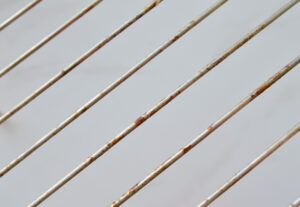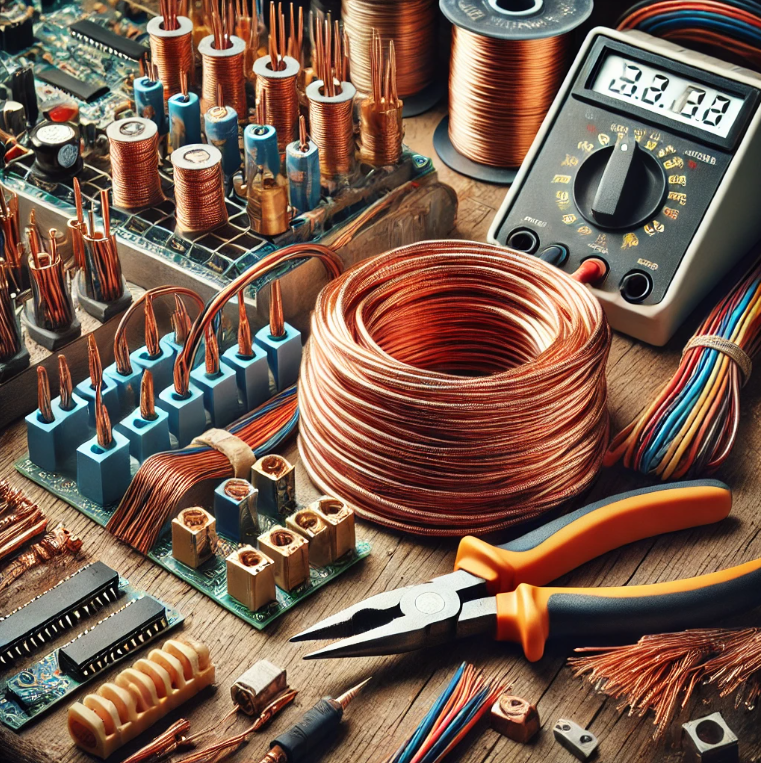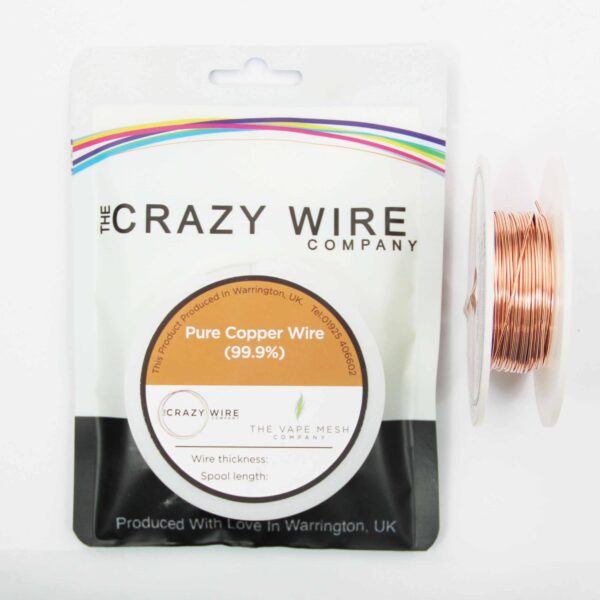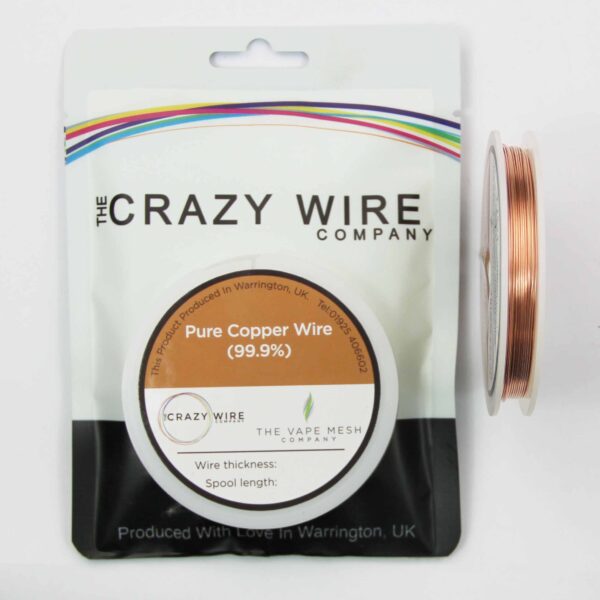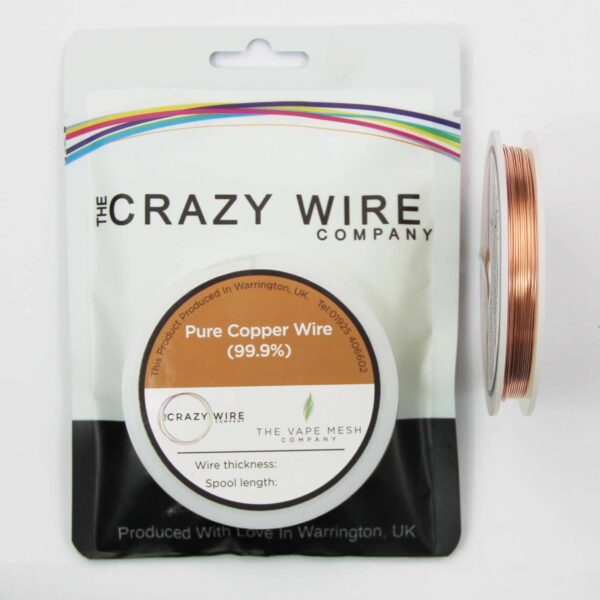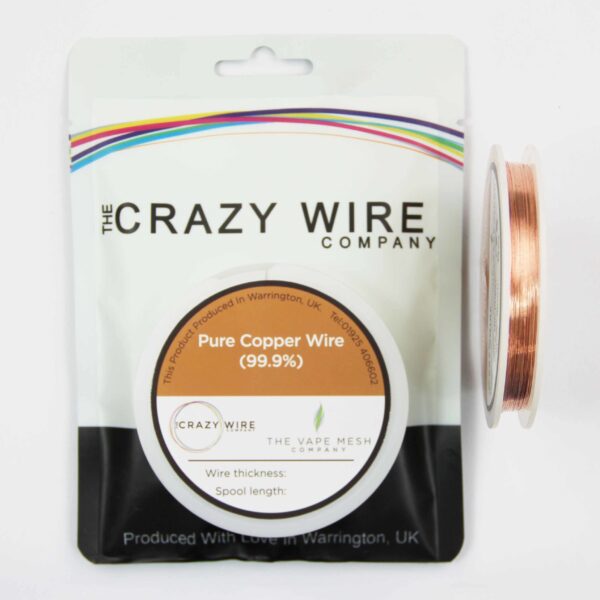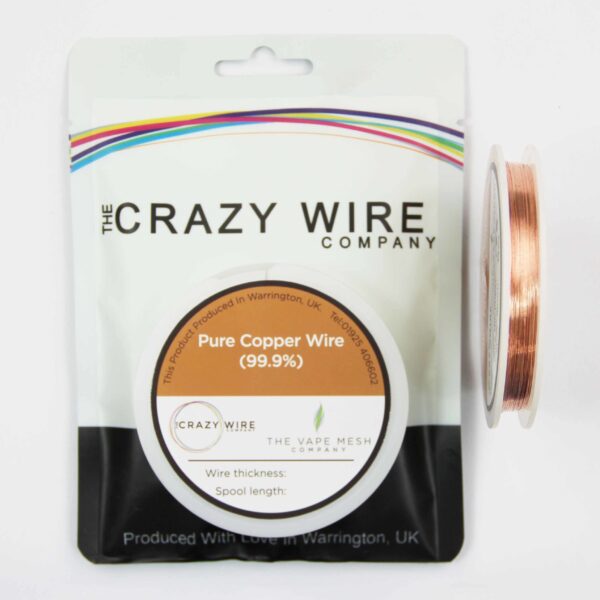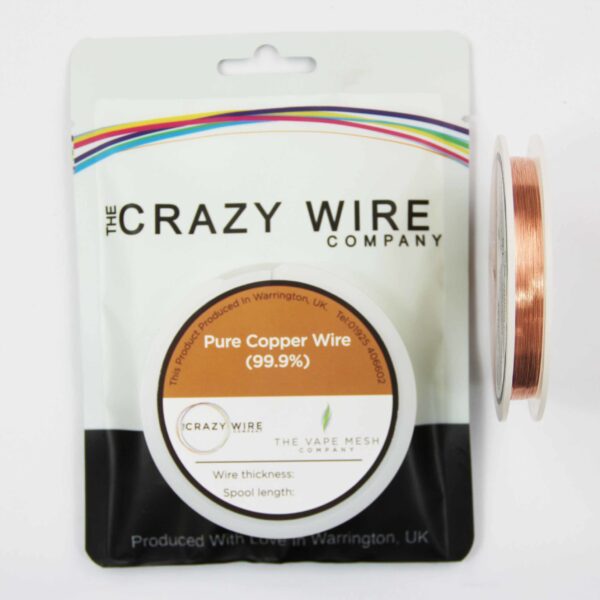Copper wire is an essential component in the world of electricity and electrical engineering. Known for its excellent conductivity and versatility, copper wire has been a cornerstone of electrical systems for centuries. We will explore the various applications of copper wire for electricity, their properties, benefits, and their role in modern electrical infrastructure in this blog.
The Properties of Copper Wire
To understand the significance of copper wire for electricity, it’s essential to first look at its unique properties. Copper is a metal with an atomic number of 29, and it is known for its excellent electrical and thermal conductivity. Some of the key properties that make copper ideal for electrical applications include:
High Electrical Conductivity: Copper has a high electrical conductivity, meaning it allows the easy flow of electrical current with minimal resistance. This property makes it highly efficient in transmitting electricity over long distances.
Ductility: Copper is highly ductile, meaning it can be drawn into thin wires without breaking. This property is crucial for manufacturing wires of various sizes and thicknesses to meet different electrical needs.
Thermal Conductivity: Copper’s ability to conduct heat efficiently is vital in preventing overheating in electrical systems, ensuring the longevity and safety of electrical components.
Corrosion Resistance: Copper is resistant to corrosion, which enhances the durability and reliability of electrical systems, especially in harsh environments.
Tensile Strength: Copper wire has high tensile strength, which makes it strong and durable, capable of withstanding mechanical stress and strain.
Applications of Copper Wire in Electricity
Copper wire is utilized in a wide array of electrical applications, each leveraging its unique properties to enhance performance, efficiency, and safety. Here are some of the most common uses of copper wire for electricity:
1. Electrical Power Distribution
Copper wire is the backbone of electrical power distribution systems. It is used in power lines, transformers, and distribution networks to transmit electricity from power plants to homes, businesses, and industries. The high conductivity of copper ensures minimal energy loss during transmission, making it a cost-effective and efficient choice for power distribution.
2. Building Wiring
One of the most familiar applications of copper wire is in building wiring. Whether in residential, commercial, or industrial buildings, copper wire is extensively used for electrical wiring. Its flexibility and ease of installation make it ideal for running through walls, ceilings, and conduits. Copper wire is used in various building wiring applications, including:
- Electrical Outlets and Switches: Copper wires connect outlets and switches to the main electrical panel, ensuring a stable and reliable power supply to electrical devices and appliances.
- Lighting: Copper wire is used to connect lighting fixtures to the electrical system, providing safe and efficient power for indoor and outdoor lighting.
- HVAC Systems: Heating, ventilation, and air conditioning (HVAC) systems rely on copper wiring to power motors, fans, and control systems, ensuring comfortable and efficient climate control.
3. Telecommunications
In the telecommunications industry, copper wire plays a crucial role in transmitting voice and data signals. Although fiber optics have become more prevalent, copper wires are still widely used in telephone lines and network cables. The following are some key applications in telecommunications:
- Telephone Lines: Copper wire has been used for decades to transmit voice signals in telephone lines. Despite advancements in technology, many landline systems still rely on copper wiring.
- Ethernet Cables: Copper wires are used in Ethernet cables (such as Cat5, Cat6, and Cat7) to transmit data between computers, routers, and other networking equipment. These cables are essential for establishing reliable and high-speed internet connections.
4. Electric Motors and Transformers
Copper wire is a fundamental component in the manufacturing of electric motors and transformers. In electric motors, copper windings are used to generate magnetic fields, which drive the rotation of the motor. The high conductivity and thermal properties of copper ensure efficient motor performance and heat dissipation. Similarly, transformers rely on copper windings to transfer electrical energy between different voltage levels, playing a crucial role in power distribution and voltage regulation.
5. Renewable Energy Systems
With the growing emphasis on renewable energy sources, copper wire has found new applications in solar and wind energy systems. In solar power systems, copper wiring is used to connect solar panels, inverters, and battery storage systems, ensuring efficient energy transfer and reliable operation. In wind turbines, copper wire is used in the generator and control systems, facilitating the conversion of wind energy into electrical power.
6. Automotive Industry
Copper wire is extensively used in the automotive industry for various electrical and electronic systems. Modern vehicles rely on intricate wiring harnesses made of copper wire to connect and power components such as:
- Lighting Systems: Headlights, taillights, and interior lighting all depend on copper wiring for power and control.
- Infotainment Systems: Copper wires connect audio systems, navigation units, and other entertainment components, providing a seamless driving experience.
- Electric Vehicles (EVs): Copper wire is even more critical in electric vehicles, where it is used in the battery, motor, and charging systems. The high conductivity and thermal properties of copper ensure efficient energy transfer and reliable performance in EVs.
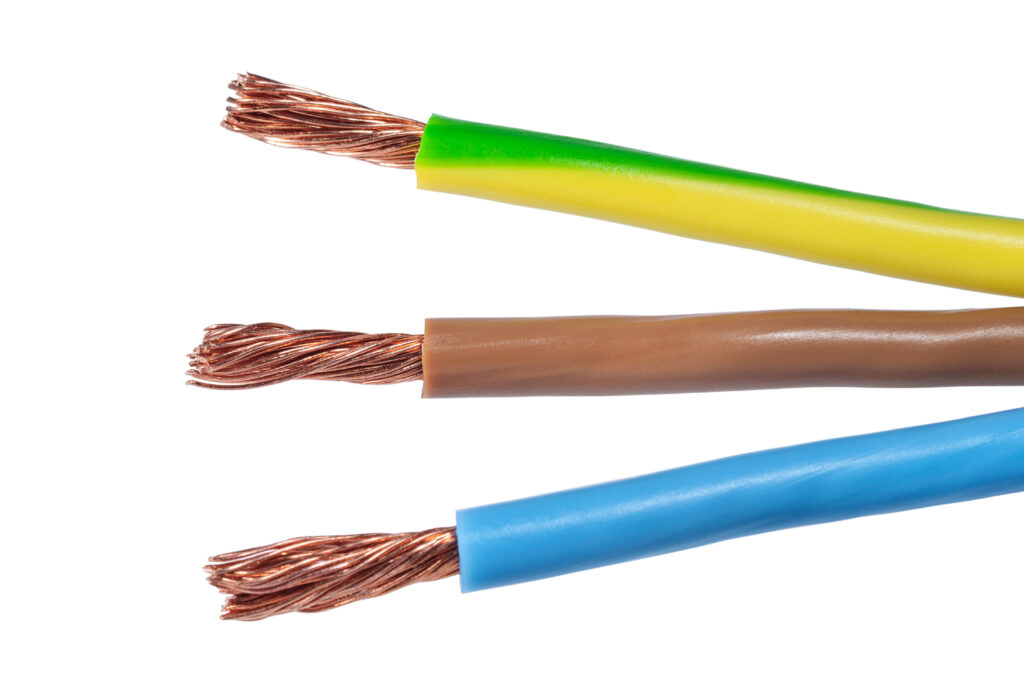
Advantages of Using Copper Wire for Electricity
The widespread use of copper wire for electricity is not accidental. Copper offers numerous advantages that make it the preferred choice for electrical applications:
1. Efficiency
Copper’s high electrical conductivity means that it can carry more current with less resistance compared to other materials. This efficiency translates into lower energy losses and reduced electricity costs.
2. Reliability
Copper wire is highly reliable and durable, capable of withstanding harsh environmental conditions, mechanical stress, and long-term use without significant degradation. This reliability ensures the stability and safety of electrical systems.
3. Safety
Copper’s excellent thermal conductivity helps dissipate heat generated by electrical currents, reducing the risk of overheating and fire hazards. Additionally, copper’s resistance to corrosion ensures that electrical connections remain secure and safe over time.
4. Versatility
Copper wire is available in various sizes, gauges, and configurations, making it suitable for a wide range of applications. Whether it’s for tiny electronic components or large power transmission lines, copper wire can be tailored to meet specific requirements.
5. Sustainability
Copper is a recyclable material, and its use in electrical systems contributes to sustainability efforts. Recycling copper reduces the need for mining new copper ore, conserving natural resources and reducing environmental impact.
Challenges and Considerations
While copper wire offers numerous benefits, there are also challenges and considerations to keep in mind:
1. Cost
Copper is more expensive than some alternative materials, such as aluminum. The higher cost can be a factor in large-scale projects, leading some to consider alternative options. However, the long-term benefits and efficiency of copper often justify the initial investment.
2. Weight
Copper is denser and heavier than materials like aluminum. In applications where weight is a critical factor, such as in aerospace or certain types of cables, the weight of copper can be a disadvantage. Engineers must balance the benefits of copper’s conductivity with the need for weight reduction.
3. Availability
Although copper is widely available, fluctuations in the global market can impact its price and availability. Supply chain disruptions or increased demand can lead to price volatility, affecting project budgets and timelines.
The Future of Copper Wire in Electricity
As technology continues to evolve, the role of copper wire in electricity is likely to expand and adapt to new challenges and opportunities. Here are some trends and developments to watch for in the future:
1. Smart Grids
The transition to smart grids, which integrate advanced communication and control technologies into the electrical grid, will likely increase the demand for high-quality copper wiring. Copper’s reliability and conductivity make it ideal for the precise and efficient transmission of electricity in smart grid systems.
2. Electric Vehicles
The growing adoption of electric vehicles (EVs) will drive the demand for copper wire, especially for battery connections, charging infrastructure, and electric motor components. Innovations in EV technology may lead to new applications and configurations for copper wiring.
3. Renewable Energy
The expansion of renewable energy sources, such as solar and wind power, will continue to create new opportunities for copper wire. Efficient energy transfer and storage solutions will rely on copper’s properties to maximize performance and reliability.
4. Advanced Electronics
The miniaturization and increased complexity of electronic devices will require high-quality copper wiring for intricate and precise connections. As devices become more advanced, the need for reliable and efficient copper wiring will grow.
5. Energy Efficiency
As energy efficiency becomes a greater priority in various industries, copper wire’s role in reducing energy losses and enhancing system performance will become even more critical. Innovations in copper alloys and manufacturing processes may further improve its efficiency and cost-effectiveness.
Copper wire for electricity remains a cornerstone of modern electrical systems, offering unparalleled efficiency, reliability, and versatility. The unique properties of copper wire make it an indispensable component in countless fields, including power distribution, building wiring, telecommunications, and renewable energy. Even though copper wire has weaknesses like weight and cost, its long-term benefits far outweigh these drawbacks.
The future of electrical engineering will undoubtedly be defined by copper wire as technology advances and new challenges arise. A copper wire’s ability to adapt to evolving needs and drive innovation enables it to be a key player in ensuring reliable, efficient, and sustainable electrical systems.
In conclusion, the importance of copper wire for electricity cannot be overstated. Copper wire plays a crucial role in powering our homes, industries, and cutting-edge technologies, illustrating the need for ongoing investment and innovation in their production and applications. In years to come, copper wire will remain at the forefront of electrical engineering advancements, regardless of whether it is improving biofuel efficiency, enabling the growth of electric vehicles, or enabling the development of smart grids.
Thank you for taking the time to read our blog. We hope that the information above helped you in the search for the right product for your project.
If you are interesting in learning more about wires, check out our blog about DIY Copper Wire Crafts or take a look at our range of Stainless Steel Wires.
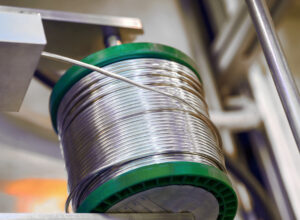
Nichrome Wire Safety: Top Tips for Working Safely
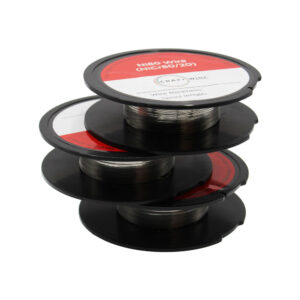
Best Wire for Electronics Projects
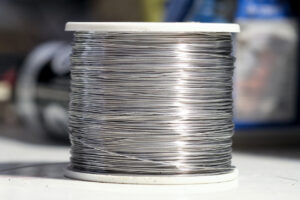
Is Ni80 Wire Suitable for DIY Heating Elements
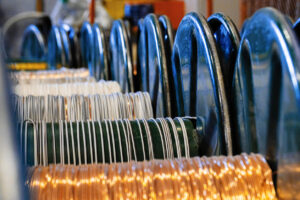
Wire Grades Explained
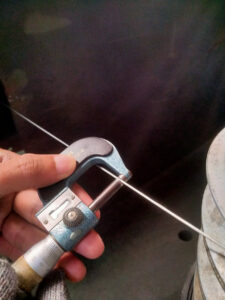
How Wire Diameter Affects Strength and Flexibility

How to Cut and Shape Wire for Custom Applications

Can Wire Be Used in 3D Printing?
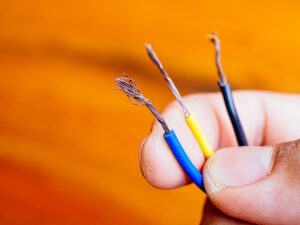
How Wire Composition Affects Conductivity
